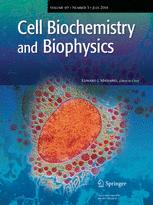
Nasser Chegini, an ob-gyn formerly on the faculty at the University of Florida who has been the subject of an Office of Research Integrity (ORI) inquiry for several years, has a second retraction.
Chegini is suspected of having used bogus data in some of his work — research backed in part by some $4 million in federal funding.
The new retraction involves a 2008 paper in Reproductive Sciences on which Chegini was senior author. Here’s the notice: Continue reading Second retraction appears for former University of Florida ob-gyn subject to ORI probe







